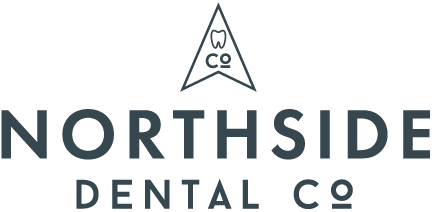According to the CDC, more than 26% of adults have some sort of tooth decay, and 46% of adults 30 years and older exhibit signs of gum disease. These issues can lead to tooth loss and an increasing need for treatment, such as affordable dental implants, if left unaddressed.
Dentists may recommend dental implants to replace missing teeth because they’re a long-term solution that protects adjacent teeth, improves oral health, and lets people enjoy a wider variety of foods – not to mention they improve the look of your smile!
But is there a cheaper alternative to dental implants?
The short answer is yes, there are dental options other than implants, which we discuss in this blog. Let’s take a closer look at dental implant alternatives and how they can help you get the dental care you need without breaking the bank.
What Are The Alternatives To Dental Implants?
The most common dental implant alternatives include bridges, partial dentures, and flippers. These treatment options have been used for many years and are considered effective forms of care. Each alternative to dental implants is different, and patients need to consider the pros and cons of each option.
Let’s break down the options a little further.
1. Bridges
Dental bridges are another alternative to implants for missing teeth. Dental bridges commonly replace one or more missing teeth and are generally made from porcelain or other ceramic material. They use metal clasps or brackets to attach to one’s natural teeth.
Similar to dental crowns, dental bridges may require multiple dentist visits. During the first appointment, the dentist will take an impression of a patient’s teeth and send it off to the lab. These impressions will then be used to create a custom-made dental bridge.
At the next appointment, the dentist will fit the dental bridge and attach it to its proper location. A local numbing agent may be used to reduce pain or discomfort in the teeth and gums.
Dental bridges can be an alternative to dentures depending on a patient’s oral health and the dentist’s recommendation.
2. Partial Dentures
Dentures are a type of dental prosthesis used to replace missing teeth. There are two types of dentures: full and partial. Here we’ll focus more closely on the use of partial dentures.
These devices are created to replace only a few missing teeth and are typically attached to the remaining teeth with clasps or brackets. They’re easy to remove, aid in eating, and can assist with one’s speech.
Dentists look at the number of missing teeth, the location of the missing teeth, the health of the remaining teeth, and the overall condition of the patient’s mouth when determining if someone’s a good candidate for partial dentures.
The cost of partial dentures can vary depending on how they’re created and the extent to which laboratory resources are utilized. Several appointments may be needed for a dentist to fit this device correctly, which can add to the overall cost of this alternative to dental implants.
3. Flippers
Flippers are detachable devices that are meant to temporarily fill in the gap caused by one or two missing teeth. Made from acrylic, they seamlessly blend in with the surrounding teeth and gums, and they’re placed directly along the jaw line.
Since dental procedures such as bone grafts and tooth extractions require extensive healing, a permanent replacement may not immediately be available. This is where the use of flippers comes in handy. Not only do they allow for a natural appearance when worn, but they can be taken out to promote a healthy and proper recover of the mouth.
Some people may enjoy the ease in which they can insert their flippers, as well as the quick turnaround time for their creation. However, others may find it tiresome to properly care for these devices.
Although they’re more cost-friendly, the price of flippers are dependent upon one’s unique case. A dentist’s plan of action will serve as an important factor when determining the amount of expenses incurred for this short-term alternative to dental implants.
What To Do If You Can’t Afford Dental Implants
The primary reason you might be looking for an alternative to implants for missing teeth is because of the cost. Dentists handle the cost of dental implants and any alternative to dental implants differently. Some require payments to be made upfront and in full, while others offer financing options.
When choosing a dental implant alternative, remember to consider all of your options. In some cases, relying on insurance can help offset the cost of some procedures. You can also ask your dentist about fee schedules and dental savings plans to help make affordable dental implants or alternatives possible.
However, always rely on the professional opinion of your dentist who can help you determine whether implants or alternatives to implants are right for you.
Learn About Affordable Dental Implants And Alternatives At Northside Dental Co.
Whether you’re interested in affordable dental implants or alternative options, having some basic knowledge can go a long way. The most important thing to remember is that your oral health is essential for your long-term well-being.
Before you decide on an alternative to dental implants or any other dental procedure, always consult with your dentist. They can help you understand the risks and benefits of each option, recommending the best course of action for your unique needs.
Northside Dental Co. understands the financial strain dental implants can put on patients. Whether you’re considering implants or a cheaper alternative to dental implants, like bridges or dentures, we’re here to help you find the right solution.
Our knowledgeable staff will walk you through your options and work with you to find a solution that best fits your situation. Set up a consultation with one of our dentists today to learn more about our affordable dental implants for patients in Richmond, VA!

